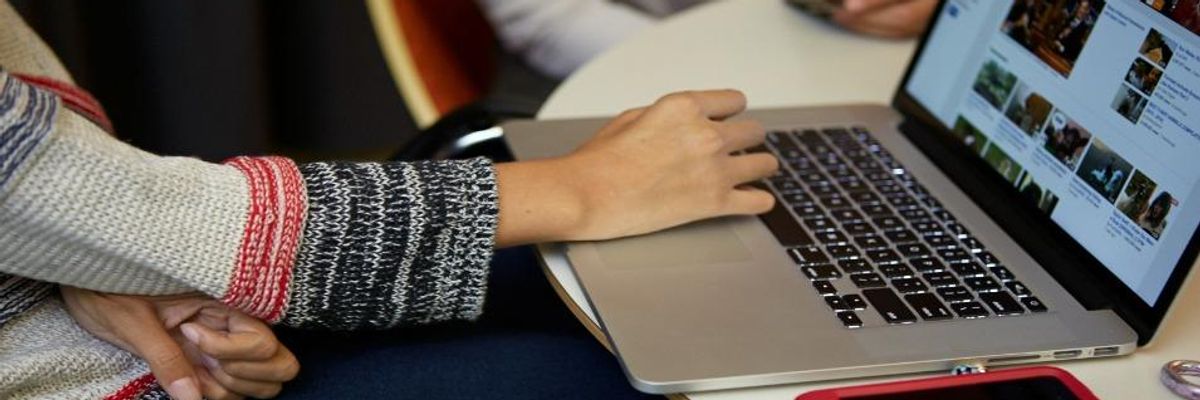An overwhelming majority of Internet users around the world--83 percent--believe that affordable access to the Internet should be considered a human right.
That was among the findings of a survey by the think tank Centre for International Governance Innovation (CIGI) and conducted by global research company Ipsos. The results were presented Monday in Ottawa, where the Global Commission on Internet Governance, an initiative by CIGI and Chatham House, is holding a two-day meeting.
"Overwhelming global public support for the idea that access to the Internet should be a human right also shows just how important the Internet has come to freedom of expression, freedom of association, social communication, the generation of new knowledge, and economic opportunity and growth," stated Fen Hampson, Director of CIGI's Global Security & Politics Program.
"Right now, one third of the world's population is online but two-thirds of the world's population is not. Unless they are brought online, a world of Internet 'have and have-nots' will not only contribute to income inequality, but also stifle the world's full potential for prosperity and innovation," Hampson stated.
The survey findings echo a 2011 United Nations report (pdf) which declared that access to the Internet is a human right, a view also shared by the inventor of the World Wide Web, Tim Berners-Lee.
Among the other findings of the CIGI survey are that nearly two-thirds of respondents--who hail from countries including China, Pakistan, Tunisia and the United States--are more concerned today about online privacy than they were compared to a year ago, and 62 percent of users expressed concerns of government agencies from other countries spying on their digital activity.
The survey also found that sixty-four percent of respondents are concerned about governments censoring the Internet.
"There is a gaping trust deficit in the Internet as people around the globe increasingly worry that their online identities and communications will be compromised or stolen by those who operate in the dark recesses of the Internet," Hampson added. "Unless trust is restored in the Internet through creative governance innovations its real potential to promote human development and global prosperity will be severely compromised."
Earlier this years, Berners-Lee asked: "In front of us are two roads--which way are we going to go? Are we going to continue on the road and just allow the governments to do more and more and more control--more and more surveillance?"
"Or are we going to set up a bunch of values? Are we going to set up something like a Magna Carta for the world wide web and say, actually, now it's so important, so much part of our lives, that it becomes on a level with human rights?" he asked.
